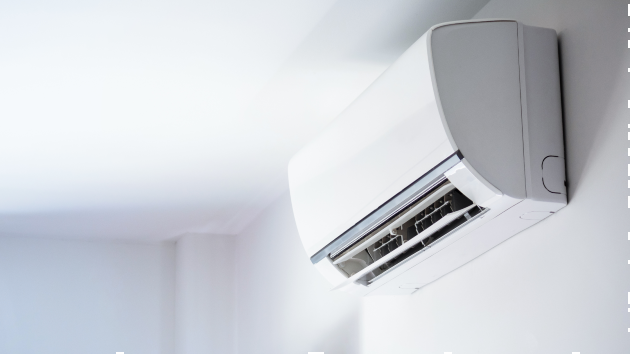
(NEW YORK) -- Millions of Americans were under historic heat wave conditions this week -- driving up widespread use of air conditioning and putting pressure on overloaded power grids.
High temperatures on Thursday reached 95 degrees in Salt Lake City, 99 degrees in Denver, 113 degrees in Phoenix, 115 in Las Vegas, 121 degrees in Death Valley and 122 in Palm Springs, California.
In Texas, where temperatures were slated to be in the mid- to high-90s for the majority of the week, residents were asked to cut back on energy use by the Electric Reliability Council of Texas, or ERCOT, which operates the state's electric grid.
The early heat wave has presented a potential record power use for the month of June and has resulted in tight grid conditions and forced outages, ERCOT announced on Monday.
"On the hottest days of the year, the electrical grid can become overwhelmed with increased energy loads to cool and dehumidify buildings," according to Harvard University's Sustainability Science Program. "When this happens the grid is forced to turn on additional, usually less efficient, power plants for extra electricity."
Energy savings help combat climate change by reducing greenhouse gas emissions and could translate to savings in utility bills, according to Harvard.
Here are the best ways to conserve energy during heat waves or peak power use:
- Set the thermostat to the highest temperature possible. Every degree of cooling increases energy use by 6% to 8%, according to ERCOT. Keep the house warmer than normal when away, according to the U.S. Department of Energy.
- Turn off ceiling fans when you leave the room. Remember that fans cool people, not rooms, by creating a wind chill effect, according to the Energy Department.
- Utilize spot ventilation by putting a fan in the bathroom while showering and the laundry room to remove heat and humidity from the home, according to the Energy Department.
- Close window shades and blinds and consider installing window treatments that can improve energy efficiency, according to the Energy Department.
- Plan high-energy use meetings or events in the morning before the hottest part of the afternoon, according to Harvard.
- If you're planning on being gone for more than an hour, unplug anything that is not needed immediately, such as charging cables, computers, monitors and printers, whenever possible, according to Harvard.
- Avoid using large appliances like ovens, washing machines, and dryers, according to ERCOT. Only run the dishwasher and washing machine when the loads are full, according to the Energy Department.
- Turn off all non-essential lights and use energy efficient task lighting rather than overhead lights, according to Harvard.
- Don't place lamps or televisions near the air conditioner or thermostat, which can run for longer when sensing the heat from the appliances, according to the Energy Department.
- Keep hot air from leaking into the home by sealing cracks and openings and adding caulk or weatherstripping around doors and windows, according to the Energy Department.
- Schedule regular maintenance for cooling equipment for maximum efficiency, according to the Department of Energy.
- Set the water heater at no more than 120 degrees to prevent scalding, conserve energy and save money -- and also consider taking cold showers. Water heating accounts for about 18% of home energy consumption, according to the Energy Department.
- Don't forget to turn off swimming pool pumps, ERCOT said.